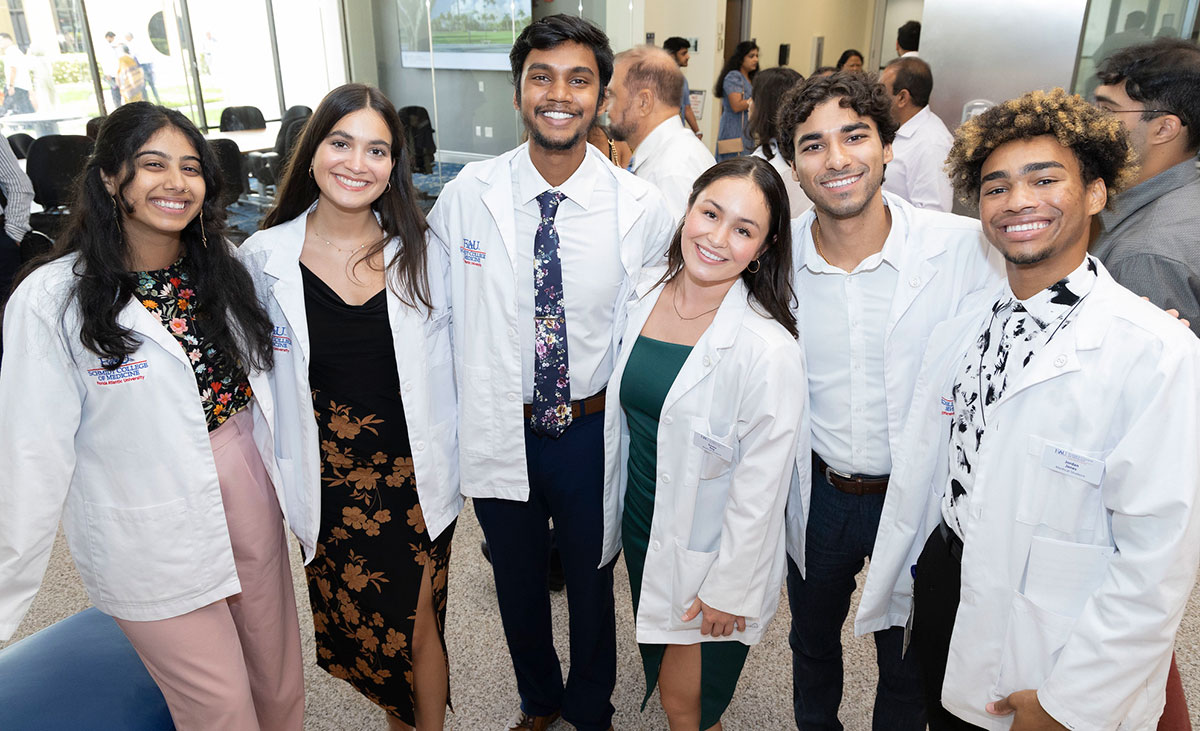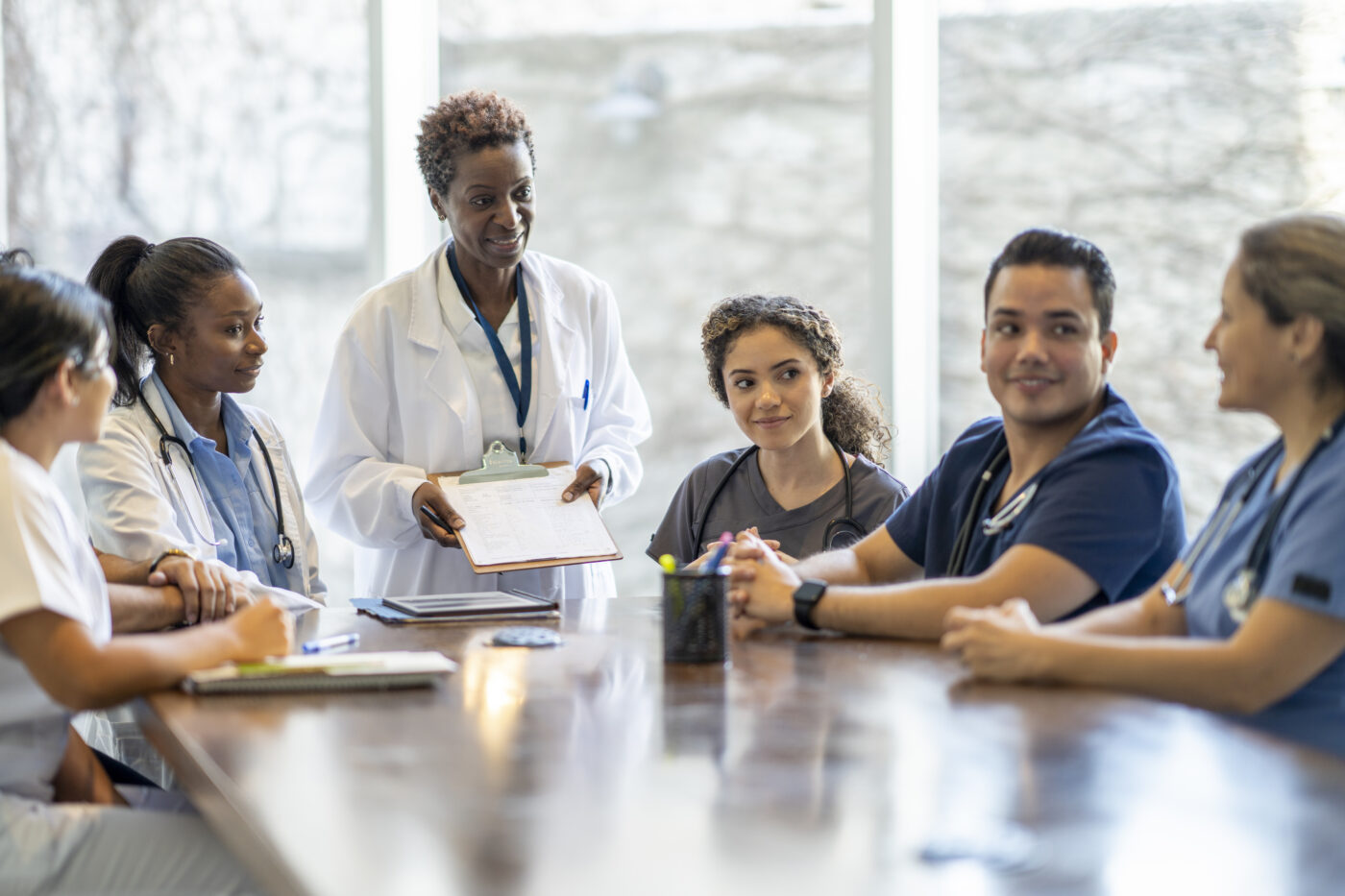A lower GPA can often feel like a significant obstacle for aspiring medical students. Admissions committees do place emphasis on academic performance, seeing strong coursework and high grades as indicators of a student’s ability to handle the intensity of medical school curricula. However, a lower GPA is not an insurmountable barrier. Medical school admissions processes have evolved, recognizing that a candidate’s true potential can’t be captured by a single metric. If you find yourself with a GPA below the average for accepted applicants, you’re not alone, and there are concrete steps you can take to bolster your application.
Your GPA doesn’t exist in a vacuum—it’s part of a broader academic record that can show improvement, resilience, and passion. By targeting key elements of your application, you can demonstrate the qualities that truly matter, such as a commitment to serving others, a capacity for hard work, and an unwavering desire to grow. Rather than viewing a lower GPA as a final verdict on your medical aspirations, consider it a challenge that can be overcome with strategic planning and a willingness to explore every opportunity to shine.
Key Highlights
- Holistic Admissions
Medical schools increasingly look beyond GPA, valuing MCAT performance, clinical exposure, leadership, research, and compassion. - Targeted Academic Improvement
Identify weak spots in your coursework and consider post-baccalaureate or master’s programs to demonstrate academic resilience and readiness. - Standout Personal Statement
Craft an authentic narrative that ties your life experiences to your aspiration to become a physician, addressing any red flags with honesty and growth. - Leveraging International Experience
International Medical Aid provides global healthcare internships and adventure programs, offering real-world clinical challenges and cross-cultural competence—key differentiators for your application. - Comprehensive Application Support
From MCAT prep to letters of recommendation and interview coaching, a well-rounded approach helps offset a lower GPA by showcasing your genuine dedication to medicine.
The Approach of Modern Admissions
Medical school admissions committees are increasingly adopting holistic review processes. This shift recognizes that doctors must possess not only intellectual abilities but also empathy, resilience, problem-solving skills, and genuine compassion for patients. While numerical metrics like GPA remain significant, they are just one piece of a more complex puzzle. Alongside grades, admissions committees consider your MCAT scores, letters of recommendation, extracurricular activities, personal statement, and interview performance.
This broader perspective benefits applicants who may not have the most competitive GPA but demonstrate exceptional qualities in other areas. For instance, if you have substantial clinical exposure, show evidence of leading a community health project, or demonstrate success in research, these elements can offset weaker grades. The holistic approach also means that the story you present in your application—from your motivations for pursuing medicine to your long-term aspirations—carries considerable weight. By leveraging your strengths in other domains, you can craft an application that underscores your readiness to tackle the challenges of a medical education despite a less-than-ideal GPA.
GPA in Medical School Admissions and the Weight of Academic Performance
Medical school courses are notoriously demanding, covering vast amounts of complex information in short periods. Thus, a strong academic record often reassures admissions committees that an applicant is capable of managing the curriculum. However, it isn’t only about the final number on your transcript. Committees frequently examine your undergraduate coursework, the trend in your grades over time, and any notable improvements you’ve made in challenging subjects.
For example, if you started college with mediocre grades but consistently improved each semester—especially in key science courses—that upward trend can speak volumes about your work ethic and capacity to overcome academic hurdles. Some committees even conduct a detailed breakdown of your GPA by year or by subject area, seeking evidence of perseverance.
Demonstrating growth often underscores the valuable qualities of determination and adaptability, both of which are prized in the medical field. This holistic look at your academic record can work in your favor if you frame these improvements effectively within your application and, later, during interviews.
Balancing GPA with Other Factors
Even if your GPA falls below the median for admitted students, all is not lost. Admissions committees seek well-rounded individuals who excel in multiple domains. One factor that can significantly bolster a weaker GPA is a competitive MCAT score. Excelling on the MCAT demonstrates mastery of the foundational knowledge required for medical school and signals your readiness for high-level academic work.
Beyond test scores, committees pay close attention to leadership roles, volunteer work, research involvement, shadowing experiences, and community engagement. They look for depth of involvement rather than a mere checklist of activities. If you’ve immersed yourself in meaningful extracurriculars—perhaps by spearheading a health awareness campaign, co-authoring a research paper, or volunteering extensively at a local clinic—that commitment can speak volumes about your passion for medicine. Ultimately, the combination of a strong MCAT score, influential letters of recommendation, and impactful extracurriculars can mitigate concerns about a lower GPA. By showcasing these strengths in a cohesive narrative, you demonstrate that you possess the personal qualities and real-world experience that medical schools prioritize.

Identifying Specific Areas for Improvement Targeting Coursework and Academics
If you find your GPA lagging, the first step to improving it is identifying exactly where you struggled. Was it in the introductory science courses? Or perhaps your difficulty lay in balancing challenging upper-level courses with extracurricular activities? Pinpointing these areas allows you to craft a plan to strengthen your academic record. You might consider retaking classes in which you performed poorly or enrolling in higher-level courses demonstrating mastery of complex topics.
For some, a post-baccalaureate program or a specialized master’s program in biomedical sciences can provide a structured avenue to showcase academic growth. These programs are designed to help students improve their science GPAs and solidify foundational knowledge. Moreover, they often offer valuable mentorship opportunities and additional laboratory or research experience. Success in a post-bacc or graduate-level program can prove to admissions committees that you’ve matured academically and can handle the demands of medical school.
Standardized Test Scores (MCAT)
The MCAT is a pivotal factor for medical school admissions, and a strong score can significantly balance a lower GPA. Scoring well on the MCAT indicates you possess the critical thinking, scientific reasoning, and test-taking stamina required in medical school. This makes MCAT preparation a top priority. Begin by developing a structured study schedule that accounts for your personal strengths and weaknesses in subjects like biology, chemistry, physics, and psychology. Many students find success by combining comprehensive content review, targeted practice questions, and full-length simulated exams.
Additionally, consider forming or joining study groups to exchange strategies and quiz one another. You might seek out formal prep courses or tutoring if you need additional discipline or personalized attention. The key is consistency: daily or weekly study blocks are more effective than irregular, last-minute cramming. Keep track of practice exam scores to pinpoint areas that need further review, adjusting your schedule accordingly. When you sit for the actual test, your thorough preparation will shine through in a score that boosts your application credibility.
Letters of Recommendation
Strong letters of recommendation can be a perception-changer in your application, particularly when your GPA is lower than ideal. When a respected faculty member or healthcare professional vouches for your intellectual curiosity, diligence, and character, it adds a dimension of credibility that statistics alone can’t provide.
Cultivate these relationships well before requesting a letter. If possible, visit professors during office hours, ask thoughtful questions, and seek extra guidance on challenging coursework. Demonstrate a genuine interest in the subject matter and a willingness to improve.
If you’re engaged in research, keep your principal investigator informed of your progress and challenges. This mentorship can lead to highly personalized letters that attest to your resilience and capacity to learn from setbacks. Additionally, consider seeking letters from volunteering or shadowing experiences—those who’ve seen you interact with patients can speak to your empathy, teamwork, and commitment to service. When you approach potential recommenders, provide them with ample lead time and a portfolio of your accomplishments and goals, so they can write a thorough, personalized letter that complements your strengths and addresses your academic journey.
Strengthening Your Extracurricular Profile Clinical Experience and Shadowing
Clinical experience is one of the most effective ways to demonstrate that you understand the realities of patient care and are wholeheartedly dedicated to medicine. Shadowing physicians in various specialties, volunteering at hospitals or clinics, and engaging in hands-on roles like EMT or medical assistant can offer invaluable insights.
International Medical Aid’s Global Healthcare Internships provide a unique opportunity for immersive, cross-cultural clinical exposure. By participating in such programs, you not only expand your understanding of healthcare in diverse settings but also develop cultural competence—a quality increasingly valued by medical schools.
Moreover, these real-world experiences often solidify your commitment to becoming a physician. You’ll see the challenges faced by patients and providers, learn to communicate across language and cultural barriers, and better grasp the emotional weight of providing care. Such encounters can fuel personal reflections that enrich your application essays and interviews. When committees see that you’ve truly experienced what it’s like to work with patients, your ambition to practice medicine appears far more genuine and deeply rooted.
Research and Academic Publications
Research experience is another avenue for showcasing your academic acumen. Conducting studies, analyzing data, and contributing to scholarly publications help demonstrate your curiosity, perseverance, and ability to handle complex scientific questions.
Even if your GPA isn’t stellar, successfully completing a research project can signal that you’re capable of deep, methodical inquiry. If possible, aim to present your findings at conferences or pursue co-authorship in peer-reviewed journals.
To find research opportunities, reach out to professors whose work interests you, or seek out dedicated undergraduate research programs. Some institutions have formal programs pairing students with faculty mentors for summer research, while others encourage independent study projects. If you choose a research path, commit to it wholeheartedly. Be prepared to examine literature reviews, spend long hours in the lab, and face inevitable failures with resilience. Overcoming challenges in research demonstrates the kind of tenacity that medical schools appreciate. Plus, you’ll develop critical thinking and analytical skills you’ll rely on throughout your medical career.
Volunteer Work and Community Service
Extracurricular involvement that benefits the community, particularly in healthcare-related settings, is a key indicator of your altruistic spirit and empathy—qualities essential in a compassionate physician. From serving at local homeless shelters to organizing blood donation drives, community service projects illustrate a commitment to improving the lives of others.
Programs offered by International Medical Aid are an excellent way to immerse yourself in community service, as they blend clinical exposure with volunteerism in underserved areas.
Involvement in community service demonstrates leadership, problem-solving, and teamwork. Admissions committees often look for applicants who go beyond passive participation. Did you take the initiative to plan a fundraising event? Did you create educational materials about disease prevention or healthy living for a local community center? Show that you’ve made a tangible impact, not just racked-up volunteer hours. Detailing how these experiences influenced your perspective on healthcare and shaped your professional aspirations will highlight your readiness to become a physician who cares about holistic well-being, not just diagnoses and treatments.
Crafting a Standout Personal Statement Reflective Storytelling
Your personal statement is your chance to tie all elements of your application together into a coherent, compelling narrative. Rather than merely rehashing your resume, use storytelling to illuminate your journey. Reflect on pivotal moments that fueled your desire to become a physician—perhaps a volunteer experience in a low-resource clinic, a family member’s battle with a chronic illness, or your participation in a medical outreach program. These anecdotes can convey your motivations powerfully and authentically.
Reflect on how each significant event impacted your worldview. Perhaps you realized the importance of patient-centered care or recognized that cultural humility is essential when working with diverse populations. Aim to make your story personal, yet relevant to medicine. If you participated in any of International Medical Aid’s internships or Adventure trips, weave in these experiences to illustrate how global exposure enriched your perspective. Remember to maintain a balance: share your human side while emphasizing how these experiences strengthened your commitment to pursuing a medical career.
Demonstrating Resilience and Determination
A standout personal statement often addresses potential red flags, such as a lower GPA, head-on—but does so with humility and honesty. If you faced academic challenges, discuss what went wrong and, more importantly, what you learned from those setbacks. Maybe you discovered better study techniques, sought academic help earlier, or restructured your schedule to balance coursework and extracurriculars. Showing growth as a result of these hurdles underscores your resilience, a trait that’s critical in the demanding environment of medical school.
Be careful, though, to avoid making excuses. Medical schools appreciate applicants who take responsibility for their performance and use failures as springboards for personal development. If you retook challenging courses or improved steadily after a difficult freshman year, highlight that upward trend. Share how these experiences sharpened your sense of discipline and resourcefulness, preparing you to handle future obstacles in medical school and beyond. This transparency can humanize your application and underscore your determination to excel despite initial roadblocks.
Showcasing Alignment with Medicine
Finally, ensure your personal statement links your experiences, qualities, and ambitions directly to medicine. Whether it’s your compassion for vulnerable populations, your fascination with scientific research, or your hands-on volunteer work abroad, frame each experience as a stepping stone toward your ultimate goal: becoming an empathetic, skilled physician. Mentioning experiences in global health—such as those gained through International Medical Aid’s Adventure Programs—can demonstrate adaptability, cross-cultural competence, and a desire to serve communities worldwide.
Articulate how these experiences shaped not just your desire to be a doctor, but also the type of doctor you hope to become. For example, explain how witnessing healthcare disparities abroad reinforced your commitment to serving marginalized populations. Or describe how researching novel treatments for chronic diseases sparked a desire to bring cutting-edge treatments to underserved communities back home. By showing how your personal and professional journey aligns with the core values of medicine—compassion, integrity, and continuous learning—you create a compelling case for your acceptance into a medical program.
Strategies
- Pinpoint and Remedy Academic Gaps
- Retake challenging courses or enroll in post-bacc/master’s programs.
- Seek academic advising or tutoring to strengthen your foundational knowledge.
- Boost Your MCAT Score
- Develop a structured study plan with full-length practice exams.
- Consider group study or prep courses for targeted improvement.
- Secure High-Quality Letters of Recommendation
- Build genuine relationships with professors, research mentors, and healthcare supervisors.
- Provide recommenders with a portfolio of your achievements and goals for a tailored letter.
- Deepen Clinical and Volunteer Experiences
- Participate in local hospital volunteering or international internships like those offered by International Medical Aid.
- Show leadership by initiating or leading healthcare-related community projects.
- Craft a Powerful Personal Statement
- Address setbacks transparently while emphasizing personal growth and resilience.
- Align your global health or community service experiences with your motivation for medicine
- Leverage Professional Consulting and Adventure Programs
- Utilize International Medical Aid’s Medical School Application Consulting for expert guidance on interviews and essays.
- Engage in adventure programs to develop cultural competence and leadership skills.
Leveraging International Medical Aid Services International Healthcare Internships
International Medical Aid’s Global Healthcare Internships immerse you in real-world hospital and clinical settings, often in regions where resources are scarce. This exposure challenges you to adapt and think critically about delivering effective patient care in different cultural contexts. You learn how to communicate with patients across language barriers, observe ethical considerations in resource-limited settings, and appreciate the value of teamwork when every moment counts.
These internships don’t just enrich your understanding of global health; they also provide robust material for your application. In personal statements and interviews, you can draw on firsthand accounts of complex cases, critical thinking under pressure, and the emotional fortitude required to see patients in dire circumstances. Admissions committees often find these stories compelling because they show you’ve stepped out of your comfort zone to gain a more holistic understanding of healthcare. Moreover, such experiences highlight your readiness to tackle the multifaceted challenges you’ll encounter as a medical student and future doctor.
Medical School Application Consulting
Securing a medical school acceptance involves multiple application components—transcripts, MCAT scores, letters of recommendation, personal statements, and interviews. International Medical Aid’s Medical School Application Consulting services can guide you through this intricate process. Consultants with expertise in admissions can help you craft a strategic application that emphasizes your strengths and addresses potential weaknesses, including a lower GPA.
This personalized guidance can be especially beneficial when you’re preparing for interviews. Admissions officers often probe into your academic history, challenging you to explain difficulties or setbacks. Through mock interviews and feedback sessions, consultants help you develop well-structured answers that demonstrate accountability and resilience.
They can also provide valuable insights on presenting your international healthcare experiences in a way that aligns with the mission and values of various medical schools. Ultimately, having a seasoned advisor in your corner can be a game-changer, ensuring you’re not merely checking boxes but presenting a narrative that resonates with admissions committees.
Adventure Programs and Global Health Experiences
Adventure Programs offered by International Medical Aid go beyond traditional clinical internships by integrating the exploration of local cultures and environments with healthcare experiences. These programs are ideal for students who wish to broaden their horizons, challenge themselves physically and mentally, and develop leadership and teamwork skills in unfamiliar settings. Such opportunities foster personal growth, adaptability, and cultural sensitivity—traits that medical schools increasingly value.
When you return from an Adventure Program, you can weave these experiences into your application essays or interview responses. For instance, you might discuss how leading a team during a community health project helped you develop organizational skills. Or you could describe the challenges of providing health education to remote communities with limited resources, which taught you the importance of empathy and patience. By highlighting these experiences, you showcase to admissions committees that you’re not just academically prepared but also emotionally and culturally competent—ready to connect with patients from all walks of life.
Putting It All Together Crafting a Cohesive Narrative
A medical school application is more than the sum of its parts—GPA, MCAT, extracurriculars, and essays. To stand out, you need to unify these components into a coherent narrative that reflects who you are and why you’re pursuing medicine. Each part should reinforce the others. For example, if your personal statement emphasizes a commitment to serving underprivileged communities, your volunteer record should confirm this passion, and your letters of recommendation should mention your dedication. Consistency in messaging across all elements of your application proves authenticity and focus.
Think of your narrative as a story you’re telling admissions committees: a story that starts with your initial spark for medicine, evolves through challenges and growth, and culminates in a well-rounded individual eager to excel in medical school.
A lower GPA can be part of this story—showing resilience and a willingness to improve—rather than the concluding chapter. When all parts of your application “speak” the same language, you create a compelling portrait that admissions committees can’t ignore.
Overcoming Setbacks and Staying Motivated
The journey to medical school is filled with pressure—from balancing tough courses to studying for the MCAT and volunteering in high-stakes clinical environments. It’s easy to feel overwhelmed, especially if your academic record includes a few missteps. The key is learning how to cope effectively with setbacks and maintain motivation. Develop a strong support system by leaning on friends, family, mentors, or guidance counselors. Engage in activities that help you manage stress, whether it’s regular exercise, mindfulness meditation, or creative hobbies.
Also, don’t underestimate the value of celebrating small victories along the way. If you improve your grades in a tough class or excel on a practice MCAT exam, acknowledge that progress. Each achievement builds confidence for the next challenge. Maintaining a positive mindset is crucial; frame every difficulty as an opportunity to learn and refine your strategies. This resilience will serve you well in medical school, where the demands are even greater, and it will also stand out in your application and interviews as a testament to your dedication and grit.
Key Takeaways
- A Lower GPA Is Not Final
Medical schools care about growth and resilience. Use strategic coursework improvements, stellar MCAT performance, and well-rounded extracurriculars to balance a less-than-ideal GPA. - Holistic Review Is on the Rise
Admissions committees evaluate factors like clinical experiences, leadership roles, research, and volunteer work alongside your academic record. A multifaceted application can stand out. - Narrative Matters
A cohesive, genuine personal statement helps connect the dots between your experiences and your passion for medicine. Address challenges openly, focusing on lessons learned and steps taken to improve. - Global Exposure Enhances Competitiveness
International experiences reveal adaptability, empathy, and cultural awareness. Programs like those offered by International Medical Aid make your application more compelling. - Consistent Effort Builds Confidence
Celebrate small wins—from coursework improvements to meaningful interactions with patients. This momentum not only boosts your credentials but also your motivation.
Frequently Asked Questions
How can I explain a low GPA in my personal statement without making excuses?
Acknowledge the challenges openly and focus on what you learned. Detail any steps you took to address the issue—such as improving study habits or seeking mentoring. Admissions committees appreciate honesty and growth, so show how you’ve evolved to become a stronger candidate.
Should I retake classes or opt for a post-bacc program if my GPA is low?
It depends on your individual circumstances. Retaking key prerequisite courses where you scored poorly can demonstrate mastery of foundational material. A post-bacc or specialized master’s program is ideal if you need a structured environment to showcase academic improvement, especially in advanced science coursework.
How important is the MCAT compared to my GPA?
While both are critical components, the MCAT can serve as a counterbalance to a lower GPA. A high MCAT score signals that you have the scientific knowledge and test-taking skills required for medical school. Still, it’s only one piece of a holistic review, so don’t neglect other parts of your application.
Can International Internships really impact my application positively?
Absolutely. International experiences, like those offered by International Medical Aid, highlight your adaptability, empathy, and willingness to tackle healthcare challenges in diverse settings. They also provide real-world stories you can draw upon in personal statements and interviews, enhancing the depth of your application.
What role do letters of recommendation play when I have a lower GPA?
Strong letters of recommendation can bolster your credibility and underscore qualities that a GPA can’t capture. When mentors and supervisors vouch for your resilience, passion, and teamwork, it adds a powerful layer of advocacy that can sway admissions committees in your favor.
Your Path Forward
The path to a medical school acceptance with a lower GPA might appear daunting, but countless students have successfully traveled it before. The strategies outlined—from targeted coursework improvements and MCAT preparation to leveraging exceptional clinical experiences and writing a reflective personal statement—can empower you to transform a perceived weakness into a launching pad for growth.
Above all, remember that your journey in medicine isn’t defined by a single GPA figure. Medical education is about shaping practitioners who are dedicated, compassionate, and lifelong learners. By engaging in meaningful extracurriculars, telling a genuine story, and highlighting your global health experiences with International Medical Aid, you’re building a profile that aligns with the evolving priorities of admissions committees.
So take proactive steps, believe in your capacity to grow, and keep your eye on the ultimate prize: the ability to make a positive, lasting impact on patients’ lives. The road may be challenging, but with the right combination of persistence, strategic planning, and passion, you can indeed turn a lower GPA into a medical school acceptance—and an extraordinary medical career beyond.





